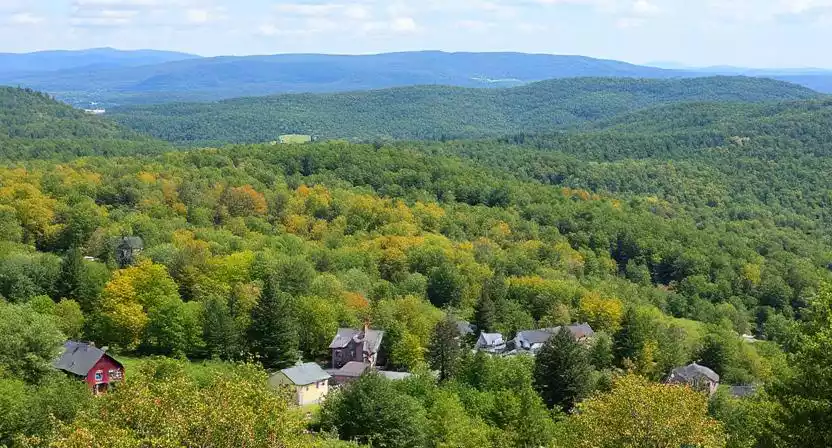New Hampshire. Often simply referred to as the Granite State. This moniker hints at its rugged terrain and enduring spirit. However, to truly understand New Hampshire, one must look beyond this solid foundation. One must explore its pivotal role in American history, its unique political landscape, and the independent nature of its people. This blog unveils ten essential aspects of New Hampshire. These insights will move beyond the surface-level descriptions. They will offer a richer and more nuanced understanding of this distinctive New England state.
The First in the Nation Primary
New Hampshire holds a unique and powerful position in the American political process. Its First in the Nation presidential primary grants it an outsized influence on the selection of presidential candidates. Decades before the general election, hopefuls descend upon the Granite State. They engage in town hall meetings and grassroots campaigning. The results of the New Hampshire primary often serve as a crucial early indicator of a candidate’s viability. This tradition underscores the state’s deep-seated engagement with civic duty and its significant role in shaping the national political conversation.
Furthermore, this early primary status ensures that New Hampshire voters have a direct and personal interaction with presidential candidates. This intimate campaigning style allows for a more nuanced evaluation of candidates beyond soundbites and television appearances. The state’s independent-minded electorate takes this responsibility seriously. They often defy national trends, further amplifying the primary’s significance.
A Legacy Forged in Revolution
New Hampshire played a vital role in the American Revolution. Its citizens were among the first to resist British rule. The state’s representatives signed the Declaration of Independence. New Hampshire also provided crucial manpower and resources to the Continental Army. The spirit of independence and self-reliance that fueled the Revolution remains a strong undercurrent in the state’s culture and identity. This historical legacy shapes its political views and its citizens’ sense of civic pride.
Moreover, the state’s history is filled with stories of individuals who championed liberty and self-governance. From the early settlements to the pivotal moments of the Revolution, New Hampshire’s history is intertwined with the birth of the nation. This deep connection to the founding principles of the United States continues to influence its political discourse and its citizens’ understanding of their rights and responsibilities.
“Live Free or Die”: A Motto Embodied
New Hampshire’s state motto, “Live Free or Die,” is more than just a catchy phrase. It encapsulates a core value deeply ingrained in the state’s culture and its people. This fierce commitment to individual liberty and limited government influences its political leanings, its approach to taxation, and its residents’ general outlook on life. This independent spirit fosters a strong sense of self-reliance and a skepticism towards government overreach.
Furthermore, this emphasis on freedom extends to various aspects of life in New Hampshire. The state generally has lower taxes and fewer regulations compared to some of its New England neighbors. This philosophy attracts individuals who value personal autonomy and fiscal conservatism. The “Live Free or Die” ethos is a tangible force that shapes the state’s policies and its people’s attitudes.
The Majesty of the White Mountains
New Hampshire boasts the stunning White Mountains, a range that dominates the state’s northern landscape. These majestic peaks offer breathtaking scenery, challenging hiking trails, and opportunities for outdoor recreation year-round. From the iconic Mount Washington, the highest peak in the Northeast, to picturesque valleys and crystal-clear lakes, the White Mountains are a natural treasure that draws visitors and defines a significant part of the state’s identity.
Moreover, the White Mountains region plays a crucial role in New Hampshire’s economy, attracting tourism and supporting outdoor industries. The beauty of the landscape also fosters a strong appreciation for nature and conservation among the state’s residents. The changing seasons paint the mountains in different hues, offering a constantly evolving panorama of natural splendor.
Lakes Region Serenity
Beyond the rugged peaks, New Hampshire offers the tranquil beauty of its Lakes Region. Winnipesaukee, the state’s largest lake, is a popular destination for boating, swimming, and lakeside living. The region’s numerous lakes and ponds provide opportunities for relaxation and recreation, contributing to the state’s appeal as a place to live and visit. The serene landscapes offer a contrast to the dramatic scenery of the White Mountains, showcasing the state’s diverse natural beauty.
Furthermore, the Lakes Region contributes significantly to New Hampshire’s tourism industry, attracting families and outdoor enthusiasts. The charming towns and villages surrounding the lakes offer a quintessential New England experience. The interconnected waterways provide endless opportunities for exploration and enjoyment of the natural environment.
A Low Tax Environment
New Hampshire is known for its relatively low tax burden. It does not have a general sales tax or a broad-based income tax. This fiscal policy is a direct reflection of the state’s “Live Free or Die” philosophy and its emphasis on limited government. Revenue is primarily generated through property taxes and targeted taxes. This low-tax environment is a significant draw for businesses and individuals seeking a more fiscally conservative state.
Moreover, the absence of a sales tax can make shopping in New Hampshire appealing to residents of neighboring states. The state’s approach to taxation is a fundamental aspect of its economic policy and contributes to its unique financial landscape within the New England region. This fiscal conservatism shapes many of the state’s economic development strategies.
The Charm of Small Town New England
New Hampshire exudes the quintessential charm of small-town New England. Quaint villages with historic architecture, town greens, and local shops dot the landscape. A strong sense of community often prevails in these smaller towns, fostering a close-knit atmosphere and a slower pace of life. This small-town character contributes significantly to New Hampshire’s appeal as a place to raise a family and enjoy a more traditional way of life.
Furthermore, these small towns often host local festivals and events that showcase the state’s culture and heritage. The strong sense of local identity and community involvement is a defining characteristic of many New Hampshire towns. The preservation of historic buildings and traditions further enhances this charming atmosphere.
Maple Syrup Heritage
New Hampshire has a rich tradition of maple syrup production. The state’s sugar maple trees yield high-quality sap, which is carefully processed into delicious maple syrup. Sugar shacks dot the landscape, particularly in the northern parts of the state. The process of maple sugaring is often a family affair, passed down through generations. New Hampshire’s maple syrup is a celebrated local product and a sweet symbol of the state’s natural resources and agricultural heritage.
Moreover, maple syrup production contributes to the state’s agricultural economy and provides a unique cultural tradition. Many sugar shacks offer tours and tastings, attracting visitors and educating them about the syrup-making process. The distinct flavor of New Hampshire maple syrup is a point of pride for many residents.
A Strong Sense of Independence
The people of New Hampshire are generally known for their independent spirit and self-reliance. This characteristic is deeply rooted in the state’s history and its “Live Free or Die” ethos. New Hampshire residents tend to be pragmatic and value individual responsibility. This independent mindset influences their political views and their approach to community involvement.
Furthermore, this strong sense of independence can be seen in the state’s high voter turnout and the active participation of its citizens in local government. New Hampshire residents take their civic duties seriously and are often engaged in shaping their communities and the state’s future. This independent spirit is a defining trait of the Granite State’s population.
Proximity to Major Metropolitan Areas
Despite its rural charm and independent nature, New Hampshire enjoys close proximity to major metropolitan areas like Boston, Massachusetts. This location offers residents access to urban amenities, cultural attractions, and diverse employment opportunities while still allowing them to enjoy the quality of life and natural beauty that New Hampshire provides. This strategic location makes New Hampshire an attractive place to live for those seeking a balance between rural tranquility and urban accessibility.
Moreover, the proximity to Boston facilitates economic ties and allows for a flow of talent and resources between the two states. New Hampshire’s location in the heart of New England also provides easy access to other states in the region, further enhancing its appeal as a place to live and do business.
Disclaimer: This blog post aims to provide a general overview of key aspects of New Hampshire. Due to the diverse nature of the state and its regions, certain nuances and local variations may not be fully represented. The information presented is based on general knowledge and common perceptions and should not be considered an exhaustive or definitive guide. Individual experiences and perspectives within New Hampshire can vary significantly.



